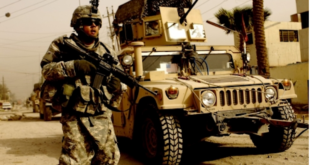ISTANBUL (AP) — Turkish police boosted security at popular resorts on the Aegean Coast and detectives arrived in the beach town of Kusadasi to investigate a minibus bombing that killed five people, including a British and an Irish tourist, officials said Sunday.
No group has claimed responsibility for the blast, which tore off the top of a minibus carrying vacationers to the beach, leaving a palm tree-lined street strewn with twisted metal and the bodies of the dead and wounded.
Police and paramilitary personnel with bomb-sniffing dogs began stopping and searching all vehicles entering the Aegean resort towns of Bodrum and Marmaris after the bombing on Saturday, security officials said. Dozens of additional police officers were also sent as reinforcements from Mugla and Ankara provinces.
A local official in Kusadasi said on Sunday that similar measures were being taken there, and that a specialised bomb team was investigating the blast.
Although suspicion immediately fell on Kurdish guerrillas, Turkey’s main rebel group quickly denied responsibility for the explosion, and Turkish investigators would not say whether they had zeroed in on any suspects.
A top commander of the Kurdish Labour Party, or PKK, Zubeyir Aydar, condemned the Kusadasi attack in a statement Saturday to the Germany-based Mezopotamya News Agency, which often carries rebel statements. The PKK’s military wing also issued a statement through Mezopotamya on Sunday saying it had nothing to do with the bombing.
The Kurdistan Freedom Falcons Organisation, a hardline group believed to be linked to the PKK, claimed responsibility for a bombing attack in the nearby resort of Cesme last Sunday that injured 21.
The group, believed to be made up of Kurds that have moved to Turkey’s large cities, has vowed to continue attacks, and the governor of Aydin province where Kusadasi is located, Mustafa Malay, said there were similarities between the Kusadasi and Cesme bombings. He said police were investigating a possible link between the two.
The PKK’s military wing, meanwhile, sought to distance itself from the Falcons in its statement Sunday, pointing to the possibility of a split between the groups.
As the wreckage was cleared in Kusadasi and the street reopened to traffic on Sunday morning, residents of the town and family members of the victims could be seen laying flowers and wreaths at the site of the explosion, and British Ambassador Peter Westmacott visited the wounded at a hospital nearby. Minibus drivers hung black ribbons and Turkish flags on their vehicles in a show of respect to the victims, the Anatolia news agency reported.
Condemnations and condolences poured in late Saturday and Sunday, including from French Prime Minister Dominique de Villepin, who called the attack “disgusting” and emphasised the importance of standing shoulder-to-shoulder in the fight against terror.
Turkey’s largest legal pro-Kurdish party, DEHAP, also condemned the attack.
“We feel deep sadness and condemn the incident,” party leader Tuncer Bakirhan said Sunday in a statement. “We hope that these kinds of incidents don’t occur again.” Kurdish rebels have stepped- up attacks in Turkey in recent months.
Malay said a team of bomb experts sent by helicopter from the capital city Ankara was investigating the blast.
“Some clues will be found. The evidence will be evaluated in a detailed manner,” Malay said.
More than 37,000 people have died in Turkey since 1984 as a result of fighting between Kurdish rebels and Turkish security forces.
Leftist and Islamic groups are also active in Turkey, and have been responsible for previous bombings.
Turkey is a favourite tourist destination for European vacationers, and the country was expecting more than 22 million visitors this year, bringing in some $19.5 billion in revenues.
 Eurasia Press & News
Eurasia Press & News



